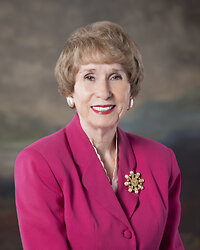One of the most prized possessions a child can receive is a broad-based education. It can never be stolen as the child grows into adulthood. There is no specific curriculum that fits every individual from infancy to adulthood. That’s what makes education so challenging and interesting. We each have our own path to follow.
If everyone learns a little bit differently and has a unique combination of diverse gifts and interests, why do we have curricula for classes from kindergarten through the twelfth grade?

There are two reasons that are simple enough for us all to understand. The first and most important is that there are a number of skills needed by everyone for daily life that also serve as building blocks for higher-level learning. These skills need to be mastered and include things like reading, basic math skills, communication skills (writing and speaking), and following directions. The other reason is that it is more efficient than each student having a personal teacher.
As schools reopen this fall,
we appreciate how critical our schools are
for the education of our children.
we appreciate how critical our schools are
for the education of our children.
As schools reopen this fall, we appreciate how critical our schools are for the education of our children. The teachers, guidance counselors, bus drivers, custodians, cafeteria staff, and nurses will all be critical partners in the education of our children. Each will have a role to play, whether it is academic, physical, dietary, safety, transportation, or social. Students spend a minimum of seven and a half hours daily in their academic classes and traveling to and from school. The cooperation provided by all school personnel has a critical impact on our children’s expanding education. School employees provide reinforcement for some of the children in their care who are missing a strong nuclear family. Teachers also work in concert with extended families to support the education of those students. That includes grandparents, aunts and uncles.
Schools are only one part of a student’s education. The community provides many partners who impact the development of our children and youth. Churches have a variety of classes and small groups for children and teenagers that are usually led by committed adults. Athletic coaches teach children teamwork as well as physical skills that help their bodies grow and develop during those first eighteen years of life. Those teams could be school-sponsored or community-sponsored.
The Chesapeake Department of Parks, Recreation, and Tourism provides extensive opportunities for families to access a wide variety of team sports throughout the calendar year.
One of the most effective ways to access information from that department is from their page on the city’s website: www.cityofchesapeake.net/157/Parks-Recreation-Tourism
There are over 80 parks in Chesapeake—from smaller neighborhood parks to large areas like the Chesapeake City Park in Greenbrier—that host large events like the annual Jubilee in May. Parents need to take advantage of these opportunities to expand the partnerships in their child’s education.
CURRENT COLUMNS
On The Front Porch With You 
Hating the Paint on Your Neighbor's Houseby Rob LauerRelationships 
A Big Thank You!by Dr. Bill AustinChildren First 
THE IMPACT OF GRADUATION by Becky Adams
